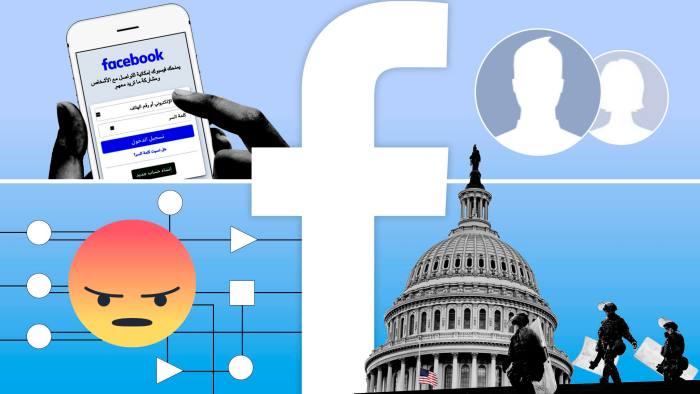
Facebook and the Attack on the Capitol: Signs Began Shortly after the Election
For Facebook, handling the Nov. 3, 2020, presidential election was a challenge. It has been shown that false information was spread via Facebook during the 2016 presidential election, and several warnings were issued regarding Trump’s remarks during the 2020 election. Perhaps these warnings were effective; there was no confusion on Election Day.
But after the votes were tallied and Trump’s loss was confirmed, unfounded allegations of “illegal voting” instantly spread. The Facebook Papers confirm that the “Stop the Steal” movement began on its platform shortly after the votes were counted. They also say that although Facebook was satisfied “at having made it past the election without major incident,” that feeling was “tempered by the rise in angry vitriol and a slew of conspiracy theories that began to steadily grow.”
The first “Stop the Steal” group appeared early in the morning after the vote count had ended. Because the comments in the group contained calls for hate and violence, Facebook suspended the group. However, there was a rapid surge of similar groups. The documents confirm that “enforcement was piecemeal” and that Facebook “had no idea how much the phrase would be focused on or how violence would be used in the movement to delegitimize the election until after the fact.”*
Many other newly formed groups also incited hate and violence and denial of the legitimacy of the 2020 election. As the number of people in these groups grew, some of them became “super inviters” who invited hundreds of other people. In some cases, these inviters were already connected on the platform.
The Facebook Papers show that although individual groups were monitored, Facebook was not looking at the movement as a whole. Because of this, Facebook’s response to the movement was delayed even though individual groups that violated Facebook’s rules of conduct were removed. “After the Capitol insurrection … we realized that the individual delegitimizing Groups, Pages, and slogans did constitute a cohesive movement.”
In the documents, Facebook claims that it learned a lot from the attack on the Capitol and that it would be better able to respond if a similar event were to occur. But it also states, “‘Delegitimization’ as a concept is new territory … few policies or knowledge existed around the issue,” and unexpected problems contributed to its delayed response.
In January 2022, The Washington Post and ProPublica, a news site specializing in investigative journalism, analyzed information from public Facebook groups. They reported that posts attacking the legitimacy of the election results between the presidential election and the Capitol insurrection numbered over 650,000, with a daily average of over 10,000.
According to The Washington Post, Facebook created a task force before the presidential election when it noticed an increase in extreme speech among Facebook groups related to American politics. As a result, large numbers of groups connected with conspiracy theory groups such as QAnon were removed. However, after Election Day, Facebook dissolved the task force and supervision over groups decreased. After the Capitol insurrection, Facebook removed more such groups.
It has also been pointed out that the efforts Facebook put into its policies regarding false information differ from those in previous elections. The Facebook Papers pose the questions: “What do we do when a movement is authentic, coordinated through grassroots or authentic means, but is inherently harmful and violates the spirit of our policy? What do we do when that authentic movement espouses hate or delegitimizes free elections?” It is essential that Facebook enact policies that answer these questions.
Former Facebook employee Francis Haugen disclosed a series of documents to the U.S. Securities and Exchange Commission, which were redacted and made available to Congress. This revised document was made available to Asahi Shimbun and other media outlets around the world.
2020 Presidential Election Facebook Timeline
June 26, 2020 Announced that the policy against hate speech would be strengthened
Aug. 19 Announced that groups connected with conspiracy theory groups such as QAnon that talk about violence would be deleted
Sept. 3 Announced that posts that try to deny the legitimacy of the presidential election would be labeled
Oct. 6 Announced that all groups related to QAnon would be removed
Oct. 7 Announcement of labels on posts of specific candidates that deny the results of the election
Nov. 3 Election Day
Nov. 4 “Stop the Steal” group is created. Facebook removed it the next day, but other groups were created.
Nov. 7 The election of former Vice President Joe Biden as the next president of the United States is confirmed. Trump does not concede the election and complains about election fraud on Twitter and Facebook.
Jan. 6, 2021 Trump’s supporters attack the Capitol
Trump’s Facebook account is frozen for 24 hours
Jan. 7 Trump’s account is suspended indefinitely
*Editor’s note: This quote, accurately translated, could not be verified.


